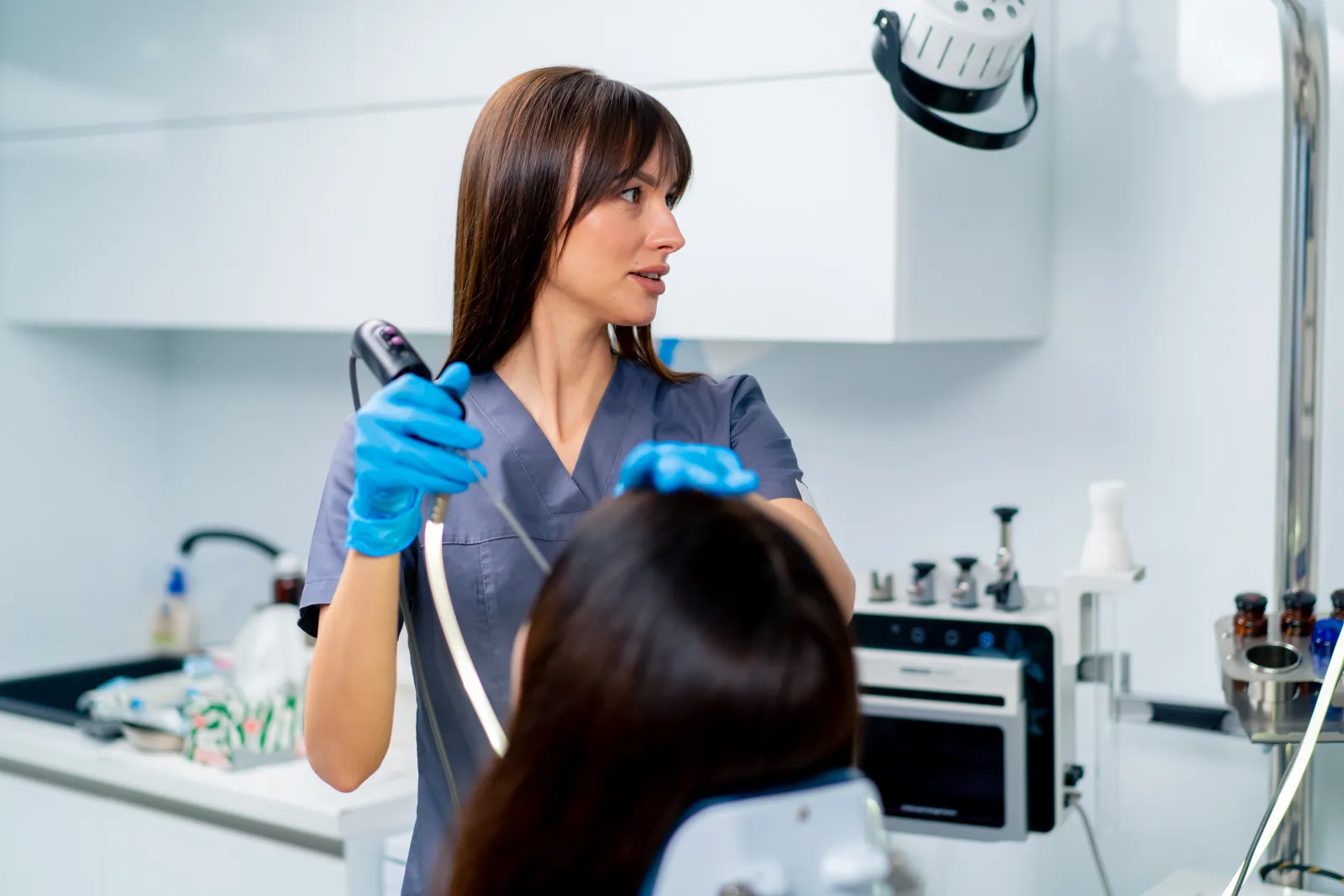- Minimally invasive procedure for comprehensive nasal evaluation, aiding in accurate diagnosis and early complication detection.
- In-office procedure involving numbing, endoscope insertion, and real-time examination for tailored treatment plans.
- Helps manage allergic rhinitis by confirming diagnoses, identifying complications, and enabling personalized treatment plans.
Allergies are a common issue that can significantly impact your daily life. For those suffering from allergic rhinitis, the search for effective treatments is ongoing. One promising diagnostic tool is the nasal endoscopy. But what exactly is this procedure, and how can it help manage allergies? This blog will delve into the endoscopy indications, the nasal endoscopy procedure, and the benefits it offers for individuals with allergic rhinitis.

Understanding Nasal Endoscopy
A nasal endoscopy is a minimally invasive procedure that allows an ENT specialist to examine the nasal and sinus passages closely. Using a thin, flexible tube with a light and camera at the end (called an endoscope), the doctor can look for abnormalities that might be causing your symptoms. This tool is particularly useful in diagnosing various nasal and sinus conditions, including allergic rhinitis.
Endoscopy Indications
There are several endoscopy indications for when a nasal endoscopy might be recommended. These include chronic nasal congestion, recurrent sinus infections, nosebleeds, and allergic rhinitis. By directly visualizing the nasal passages, the ENT specialist can identify inflammation, polyps, structural abnormalities, and other issues that might not be visible through other diagnostic methods.
The Nasal Endoscopy Procedure
The nasal endoscopy procedure is typically performed in an ENT specialist's office and takes only a few minutes. Here's a step-by-step overview of what to expect:
- Preparation: The nasal passages are usually numbed with a topical anesthetic spray to minimize discomfort.
- Insertion: The endoscope is gently inserted into one of the nostrils. The flexible nature of the endoscope allows it to navigate the nasal passages without causing significant pain.
- Examination: As the endoscope moves through the nasal cavity, the ENT specialist can view the images on a screen in real time. This allows for a thorough examination of the nasal passages and sinuses.
- Diagnosis: Based on the findings, the doctor can diagnose any abnormalities and discuss potential treatment options with you.
Allergic Rhinitis Nasal Endoscopy
Allergic rhinitis is a condition characterized by inflammation of the nasal mucous membrane due to allergens like pollen, dust, and pet dander. Symptoms include sneezing, itching, nasal congestion, and a runny nose. A nasal endoscopy can be particularly beneficial for patients with allergic rhinitis in several ways:
Accurate Diagnosis
A nasal endoscopy provides a clear view of the nasal passages, helping to confirm a diagnosis of allergic rhinitis. The doctor can observe the extent of inflammation and other changes that might not be detectable through physical examination or imaging tests alone.
Identifying Complications
Sometimes, allergic rhinitis can lead to complications such as nasal polyps or sinusitis. A nasal endoscopy can identify these issues early, allowing for timely intervention and treatment.
Tailored Treatment Plans
A nasal endoscopy provides detailed insights into the condition of the nasal passages, enabling the ENT specialist to develop a more tailored treatment plan. This plan can include recommendations for medications, lifestyle changes, or even surgical interventions if necessary.
Benefits of Nasal Endoscopy for Allergy Management
Integrating nasal endoscopy into the management of allergic rhinitis offers several benefits:
- Minimally Invasive: The nasal endoscopy procedure is minimally invasive and typically well-tolerated by patients. It does not require incisions or extensive recovery time, making it a convenient option for diagnostic purposes.
- Comprehensive Evaluation: A nasal endoscopy allows for a comprehensive evaluation of the nasal passages, providing detailed information that can guide effective treatment strategies. Our ENT services offer a variety of options that may be recommended based on the endoscopy findings.
- Early Detection: Early detection of complications such as polyps or structural abnormalities can prevent the progression of symptoms and improve the overall quality of life for individuals with allergic rhinitis. A nasal endoscopy is a valuable tool in the diagnosis and management of allergic rhinitis. Offering a detailed view of the nasal passages helps ENT specialists at ENT of Georgia South develop precise treatment plans tailored to each patient's needs. If you suffer from chronic nasal symptoms or suspect you have allergic rhinitis, consider consulting with the experts at ENT of Georgia South to see if a nasal endoscopy might be right for you.
Ready to take control of your allergies? Schedule an appointment with ENT of Georgia South today!

